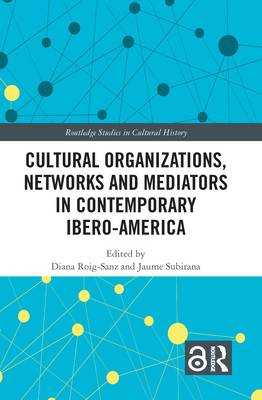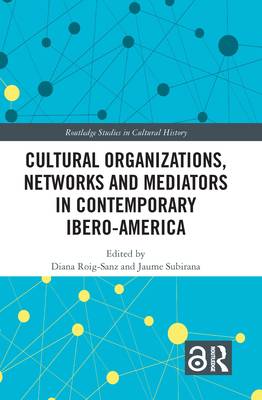
- Retrait gratuit dans votre magasin Club
- 7.000.000 titres dans notre catalogue
- Payer en toute sécurité
- Toujours un magasin près de chez vous
- Retrait gratuit dans votre magasin Club
- 7.000.0000 titres dans notre catalogue
- Payer en toute sécurité
- Toujours un magasin près de chez vous
Cultural Organizations, Networks and Mediators in Contemporary Ibero-America
Description
This book proposes an innovative conceptual framework to explore cultural organizations at a multilateral level and cultural mediators as key figures in cultural and institutionalization processes. Specifically, it analyzes the role of Ibero-American mediators in the institutionalization of Hispanic and Lusophone cultures in the first half of the 20th century by means of two institutional networks: PEN (the non-governmental writer's association) and the International Institute of Intellectual Cooperation (predecessor to UNESCO). Attempting to combine cultural and global history, sociology, and literary studies, the book uses an analytical focus on intercultural networks and cultural transfer to investigate the multiple activities and roles that these mediators and cultural organizations set in motion. Literature has traditionally studied major figures and important centers of cultural production, but other regions and localities also played a crucial role in the development of intellectual cooperation. This book reappraises the place of Ibero-America in international cultural relations and retrieves the lost history of key secondary actors. The book will appeal to scholars from international relations, global and cultural history, sociology, postcolonial Studies, world and comparative literature, and New Hispanisms.
The Open Access version of this book, available at http: //www.taylorfrancis.com/books/e/9780429299407, has been made available under a Creative Commons Attribution-Non Commercial-No Derivatives 4.0 license.
Spécifications
Parties prenantes
- Editeur:
Contenu
- Nombre de pages :
- 334
- Langue:
- Anglais
- Collection :
- Tome:
- n° 82
Caractéristiques
- EAN:
- 9780367280505
- Date de parution :
- 14-01-20
- Format:
- Livre relié
- Format numérique:
- Genaaid
- Dimensions :
- 152 mm x 231 mm
- Poids :
- 612 g

Les avis
Nous publions uniquement les avis qui respectent les conditions requises. Consultez nos conditions pour les avis.





